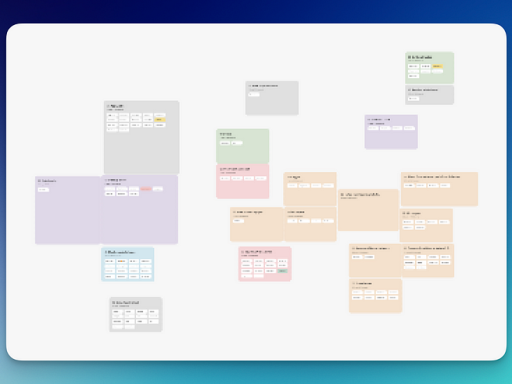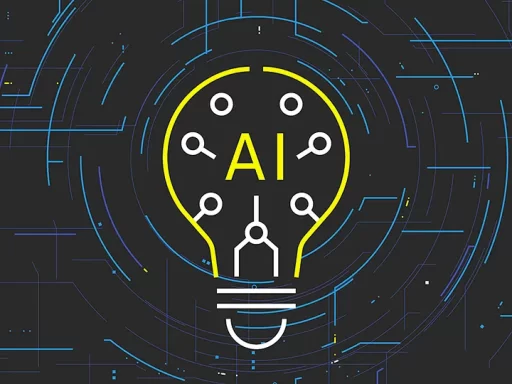In today’s fast-paced world, achieving a healthy work-life balance has become more important than ever. With increasing workloads, demanding deadlines, and the blurred boundaries of remote work, it’s no wonder that many of us struggle to maintain this delicate equilibrium. However, there’s hope on the horizon. Artificial Intelligence (AI), with its continually evolving technology, offers innovative ways to assist individuals in various aspects of life, including achieving a balanced work-life. In this article, we’ll explore how AI can help us manage our time more effectively, enhance our productivity, and ultimately lead a more fulfilling life.
Introduction
A. Definition and importance of work-life balance
Work-life balance refers to the equilibrium that an individual needs between time allocated for work and other aspects of life such as personal interests, family, and social activities. Achieving this balance is essential not only for personal health and relationships but also for improving productivity and overall quality of life.
B. Introduction to Artificial Intelligence (AI) and its potential to aid in achieving work-life balance
AI is a branch of computer science that aims to create machines that mimic human intelligence — machines capable of learning, reasoning, problem-solving, perception, and language understanding. While AI technology might seem intimidating to some, its objective is to enhance our lives, making routine tasks easier and our work more efficient. This introduction to AI will serve as a foundation for understanding how it can help us achieve a more balanced, productive lifestyle.
The Struggle for Work-Life Balance
A. Challenges in maintaining a healthy work-life balance in the modern age
The modern age presents a plethora of challenges in maintaining a healthy work-life balance. On the one hand, we have increasing workloads, demanding deadlines, and the blurry boundaries of remote work. On the other, there are personal responsibilities, family time, self-care, and the pursuit of hobbies and interests. Juggling between these two worlds can be overwhelming, leading to stress, burnout, and a lack of focus.
B. Impact of work-life imbalance on personal well-being, productivity, and professional growth
An imbalance between work and personal life doesn’t just affect personal well-being, it also has a significant impact on productivity and professional growth. Chronic stress and exhaustion can lead to decreased productivity, errors, and disengagement. Furthermore, it can also cause health problems including anxiety, depression, and heart disease, among others. Hence, the importance of work-life balance can’t be overstated — it is crucial for maintaining physical and mental health, promoting job satisfaction, and enhancing overall life quality.
Understanding AI and Its Potential
A. Explanation of Artificial Intelligence and its capabilities
Artificial Intelligence, or AI, is a broad field of computer science focused on building smart machines capable of performing tasks that typically require human intelligence. These tasks can range from interpreting natural language and recognizing patterns to making decisions and solving complex problems. At its core, AI is about creating systems that can learn from experience, adapt to new inputs, and perform human-like tasks.
B. Role of AI in transforming the way we work and its potential to improve work-life balance
Over the years, advancements in AI have led to the development of impressive technologies that have made our lives easier and more efficient. From virtual assistants like Siri and Alexa that simplify our daily tasks, to sophisticated data analysis tools that provide invaluable business insights, AI is increasingly becoming an integral part of our everyday lives. More importantly, AI has the potential to transform the way we work by automating routine tasks, providing better insights, and enabling more flexible and efficient ways of working. Consequently, it has a significant role to play in improving work-life balance by enhancing productivity and freeing up time for personal activities.
AI Tools for Time Management
A. Overview of AI tools for effective time management
In an era where time is of the essence, AI tools play a significant role in managing time effectively. There are various tools available, designed to help you optimize your schedule and keep track of tasks. For instance, AI-powered calendar applications can auto-schedule your meetings, taking into account the best time slots based on your routines and preferences. Similarly, AI task managers can prioritize your tasks based on urgency and importance, ensuring that you focus on what matters most.
B. Benefits of AI tools in enhancing productivity and work efficiency
These AI tools enhance productivity and work efficiency in several ways. They eliminate the need for manual scheduling and prioritizing of tasks, saving a considerable amount of time that can be utilized for more productive purposes. In addition, these tools provide reminders and alerts, ensuring you never miss a deadline. Furthermore, by automating routine tasks, they free up mental space, allowing you to focus on complex tasks that require creative thinking and problem-solving skills. This not only leads to improved productivity but also contributes to a better work-life balance.
AI Tools for Enhancing Productivity
A. Overview of various AI productivity tools
With the rise of AI, there has been an impressive influx of productivity tools that leverage this technology. These tools vary widely, addressing different aspects of productivity. Some tools, like AI personal assistants, manage your schedules, set reminders, and even respond to emails on your behalf. Other tools use AI to automate document creation and editing, while some harness machine learning to provide insights on work habits, helping you to understand and optimize your work patterns. AI-based project management tools can also help in coordinating team tasks, setting deadlines, and tracking progress, thus streamlining the entire project management process.
B. Role of AI productivity tools in boosting productivity and fostering a culture of continuous improvement
These AI productivity tools significantly boost productivity by automating mundane and routine tasks, enabling you to focus on more complex and demanding aspects of your work. They also assist in maintaining order and organization, which can be particularly beneficial in managing large projects or teams. Furthermore, by providing analytical insights on your work habits, these tools can help you identify productivity bottlenecks and work towards resolving them, thus fostering an environment of continuous improvement. In this way, they play a crucial role in improving your work efficiency and facilitating better work-life balance.
Balancing Work and Life with AI
A. Advantages of AI tools in automating and streamlining tasks
The ability of AI tools to automate and streamline tasks is a major advantage when striving for work-life balance. With the assistance of AI, repetitive and time-consuming tasks can be automated, freeing up your schedule to focus on more fulfilling or crucial activities. For instance, AI chatbots can handle routine customer inquiries, leaving you to deal with more complex customer issues. AI calendar assistants can schedule your meetings, factoring in travel times and breaks to prevent overbooking. Personal AI fitness trainers can design personalized workouts and nutritional plans, supporting your health and well-being without the need for long hours at the gym or frequent consultations with a personal trainer.
B. Practical examples of AI enhancing work-life balance
Practical examples of AI enhancing work-life balance are plentiful. Take the case of a remote worker using an AI virtual assistant. This assistant can manage emails, set reminders for breaks, schedule meetings, and even organize tasks, thus reducing the stress and time associated with these activities. This allows the individual more time for relaxation, hobbies, or spending time with loved ones. Or consider a working parent using an AI meal planning app that considers dietary preferences, health goals, and budget to create a weekly meal plan and grocery list. This eliminates the daily hassle of figuring out what to cook, creating a grocery list, and worrying about nutritional balance, thereby saving time and reducing stress.
Case Studies: Real-life Success Stories
A. Real-life examples of individuals and businesses leveraging AI tools for better work-life balance
Several individuals and businesses have successfully leveraged AI tools to improve their work-life balance. For instance, consider John, a project manager at a mid-sized software company. By using an AI tool that automates project planning and resource allocation, he managed to reduce his weekly working hours by 10, allowing him more time for his family and hobbies. Another example is Mary, a freelance graphic designer. By utilizing an AI tool for client relationship management, she could automate invoice generation, follow-ups, and even basic client communication, freeing her time for creative work and personal life. Also, companies like IBM have reported significant improvements in employee satisfaction and productivity levels after integrating AI-driven HR tools.
B. Insights and lessons learned from the case studies
From these case studies, a few insights emerge. Firstly, automation of repetitive tasks is a key area where AI tools can contribute to work-life balance. Secondly, even areas requiring personal touch, like client communication, can be partially automated with personalized AI tools. Thirdly, AI is not just for big corporations; individuals and small businesses can also leverage AI for better work-life balance. Lastly, the effective use of AI requires a clear understanding of one’s own needs and the willingness to experiment with new technologies.
Conclusion
A. Recap of the potential of AI in improving work-life balance
To wrap up our discussion, the potential of AI in improving work-life balance is considerable. By managing time more effectively, enhancing productivity, and even taking over some of our daily tasks, AI tools can free up our time and energy, enabling us to focus on what truly matters, both in our work and personal lives.
B. Encouragement for readers to explore and leverage AI for a more balanced, productive, and fulfilling life
We encourage you, our readers, to explore the world of AI and leverage it to create a more balanced, productive, and fulfilling life. In this digital age, achieving work-life balance is no longer just a dream but a practical goal that we can reach with the help of AI. Remember, technology is a tool, and it’s up to us to use it to its full potential to create the life we want.






